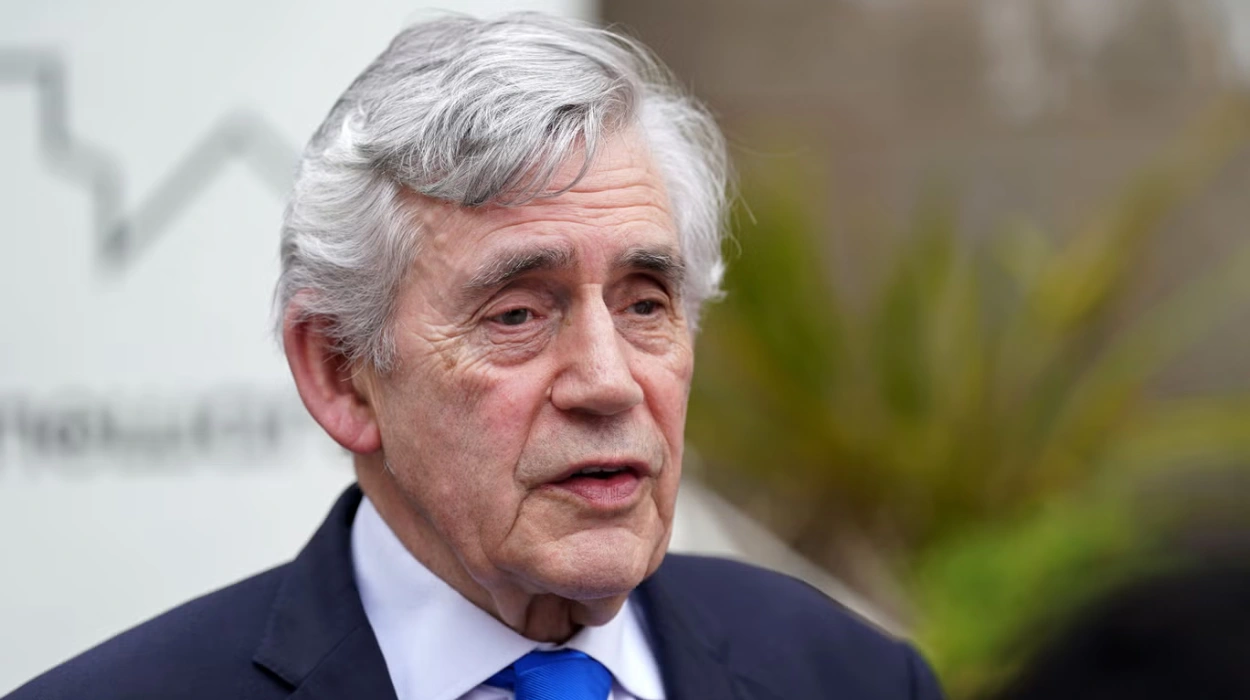UK (Parliament Politics Magazine) – Gordon Brown urges Rachel Reeves to exempt the UK defence pledge from budget rules, calling it key to national interest and the European security role.
As reported by The Independent, former PM Gordon Brown urged Chancellor Rachel Reeves to exempt defence spending from borrowing rules, saying it would ease pressure on taxpayers.
He said Britain’s commitment to spend 5% of GDP on national security should be managed as a NATO initiative, with costs shared across Europe.
What did Gordon Brown say about the UK’s defence spending target?
Gordon Brown, Labour’s former chancellor, urged that the increase in defence spending be classified as “exceptional”, as Germany has done.
He said,
“When you come to the fiscal position, look, there’s one thing that’s happened over the last few months that has been quite unprecedented – to spend 5% on defence expenditure as we want to spend by the 2030s.”
Mr Brown stated,
“But this is a Nato initiative, this is a European initiative. We should be doing this jointly. We should have either jointly issued bonds or a Nato defence fund, and we should be sharing the cost across the continent, and that should be regarded as something extraordinary and exceptional, outside the fiscal rules. That would create the kind of headroom that Rachel Reeves needs.”
He said,
“If you look around Europe at the moment, you see that the Germans are looking at what they can do outside the fiscal rules… the French are looking at ways of doing it, the Polish have already done that,”
adding,
“What I’m actually asking for is a European-wide initiative. Let’s do it jointly, either jointly issued bonds or individually issued bonds that are simultaneous and therefore seen by the markets as an extraordinary issue.”
What did Gordon Brown say about scrapping the two-child benefit cap?
Gordon Brown has urged the government to scrap the two-child benefit cap, calling it essential to tackling child poverty.
He said,
“I want the most cost-effective way of getting the first half a million children out of poverty, and clearly from all the information available, that is by far the most cost-effective way of taking half a million children out of poverty for about £3bn.”
Mr Brown stated,
“Any other measure would probably cost £4, £5 or £6bn and so if you are looking at the most cost effective way, and we did a survey on this, 75 per cent of people believe that if this is the most cost effective way of getting people out of poverty we should abolish the two-child rule.”
He stated that he had seen a
“return to the kind of poverty of 60 years ago, and I think we have got to act now.”
Mr Gordon said,
“That is why it is urgent that we take action at this Budget to deal with the under-taxed gambling industry to pay for half a million children to come out of poverty.”
How will Reeves’ fiscal rules cope with rising defence costs?
Rachel Reeves, upon entering the Treasury, pledged to uphold fiscal discipline by ensuring day-to-day spending does not exceed tax revenues and by reducing the UK’s debt-to-GDP ratio over time.
She is set to miss a borrowing target by £41.2bn and must restore a £10bn fiscal buffer, according to the National Institute.
The government has cut foreign aid to boost defence funding, but economists warn that meeting NATO’s 5% target by 2035 may add an extra £38.6 billion to the budget.
What did IPPR suggest to fund the end of the two-child limit?
The Institute for Public Policy Research estimates that increasing levies on the gambling sector could raise £3.2 billion, enough to remove key benefit caps and lift 500,000 children out of poverty.
The IPPR said it would be fair to expect gambling firms to help fund the cost of ending the policy. It called for tax increases on slots and gaming machines, raising rates from 20% to 50%.
It also proposed lifting the betting duty on non-racing bets from 15% to 25% to align with racing rates.


